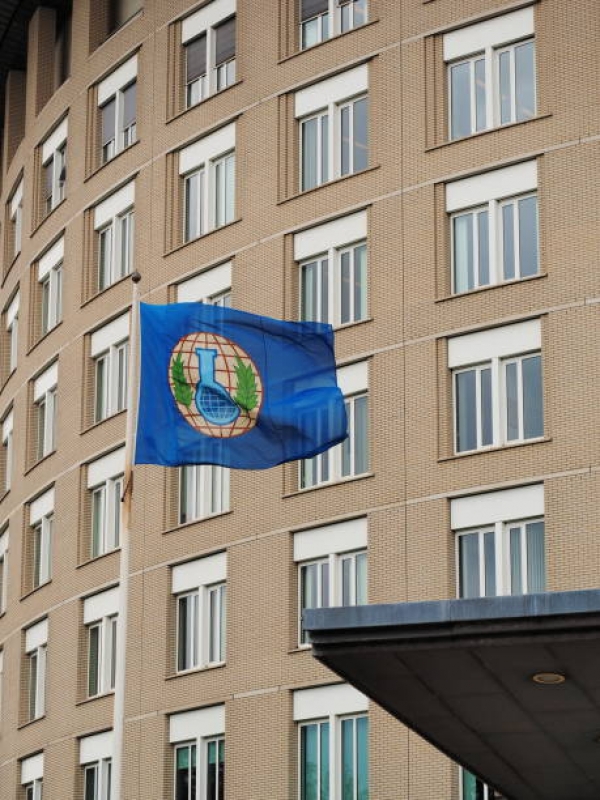State parties to the Chemical Weapons Convention (CWC) will hold a conference in the Hague to discuss the suspension of Syria’s rights under the Convention, as a symbolic way to condemn the war crimes committed by the Syrian government. Following the repeated violations of the Convention through the use of chemical weapons against the civilian population, Syria will be deprived of its voting rights at CWC conferences and will be barred from serving on the decision-making bodies of the Organization for the Prohibition of Chemical Weapons (OPAC).
Since the beginning of the civil war in 2011, the Syrian government and the Islamic State have employed nerve agents, choking agents, and blister agents against the civilian population. Due to the limited access by the inspectors to the conflict zone, it has not been possible to accurately estimate the number of attacks carried out, with 212 likely cases documented by the Syrian Archive, including 85 confirmed by Human Rights Watch, but only 16 ascertained by the OPCW Fact-Finding Mission as of June 2018. The proposal to suspend Syria’s rights under the Convention has sparked disagreement in the United Nation Security Council, as Russia has called for an informal meeting of the Council to oppose the action against its ally. Russia has, in fact, defended the Syrian government against accusations of having used chemical weapons. Back in 2017, Moscow had used its veto in the Council against a resolution that would have allowed the investigative panel, the Joint Investigative Mechanism, to continue operating on Syrian territory.
While this step would have a symbolic relevance, some countries and organizations are working towards accountability, with prosecutors in Germany and France appealing to the principle of universal jurisdiction to prosecute President Bashar al-Assad and other regime members for the use of chemical weapons. In order to safeguard respect for the treaty, Human Rights Watch has called on governments to take this important step in suspending Syria’s rights and privileges, defining this action as “the least they can do” in light of the crimes committed by the Syrian government.
To know more, please visit:
https://www.hrw.org/news/2021/04/20/suspend-syrias-rights-under-chemical-weapons-convention
https://www.nytimes.com/2017/11/17/world/middleeast/syria-chemical-weapons-united-nations-jim.html
https://www.armscontrol.org/blog/2018-09-23/what-you-need-know-about-chemical-weapons-use-syria
https://www.nytimes.com/2021/03/02/world/europe/syria-chemical-weapons-assad.html
Author: Carla Leonetti; Editor: Francesca Mencuccini







